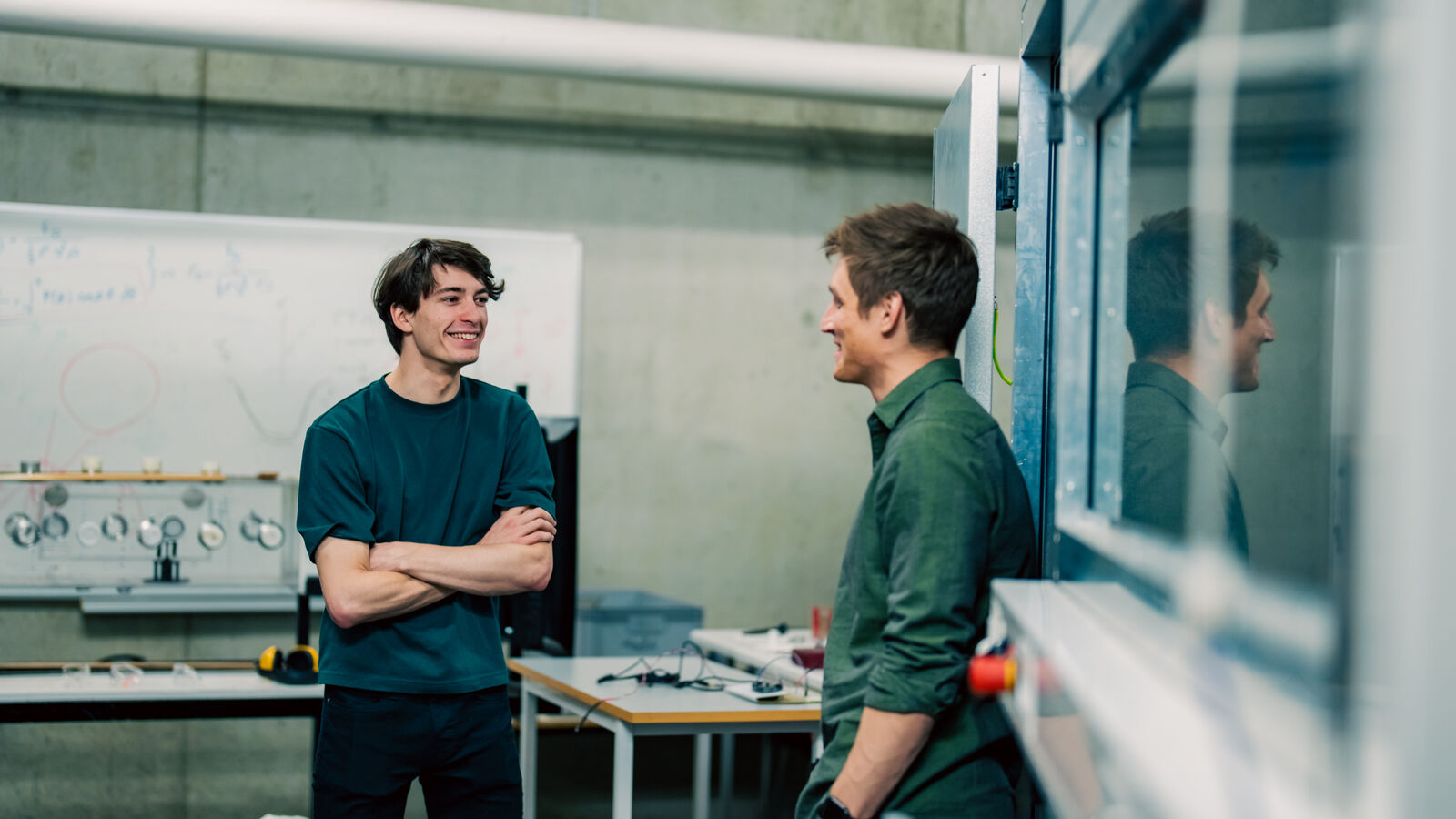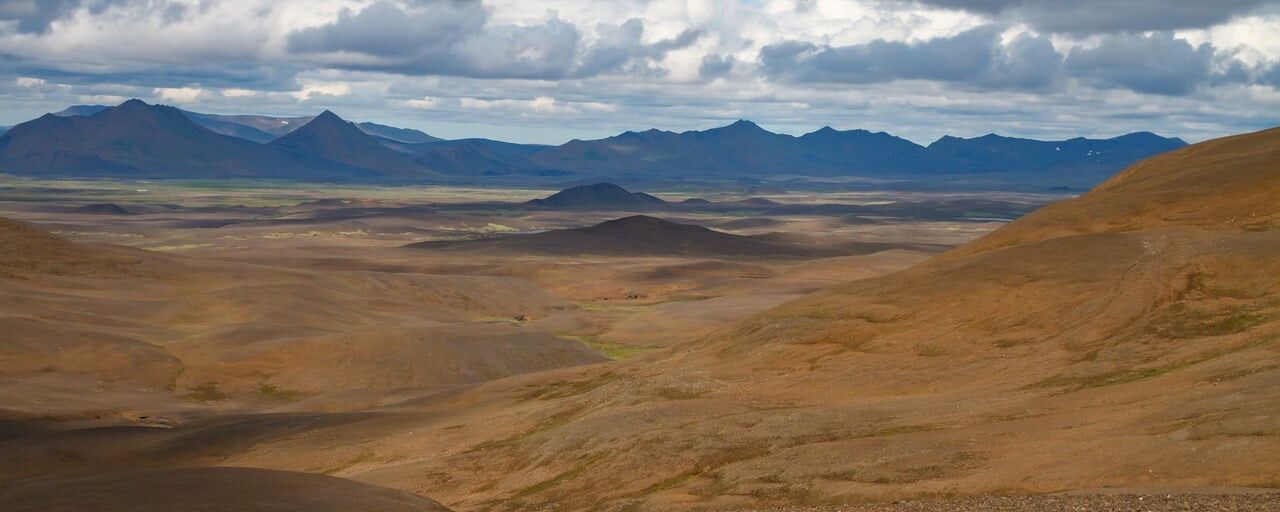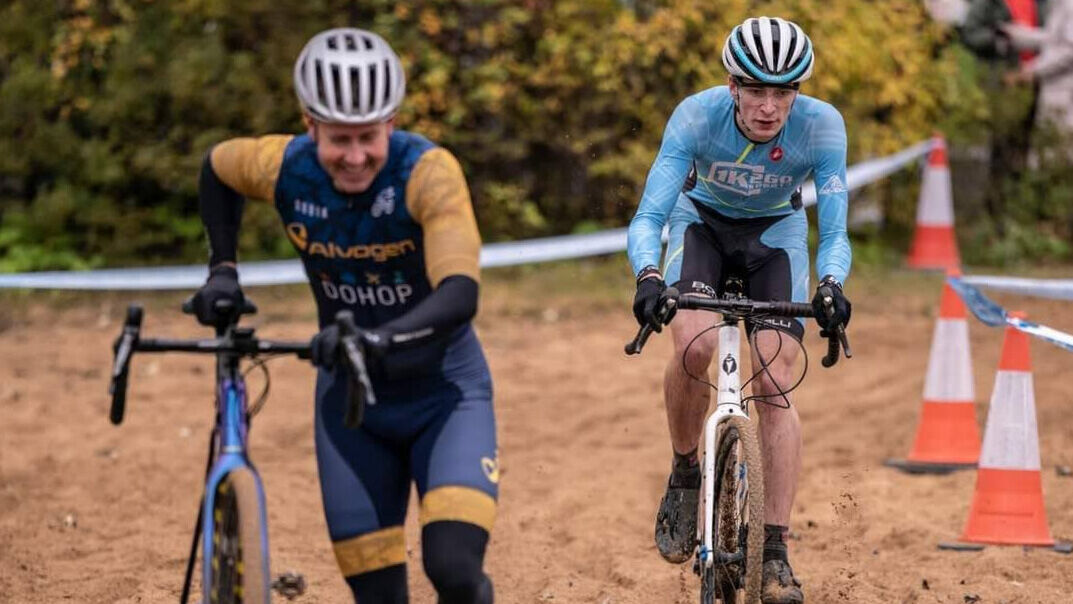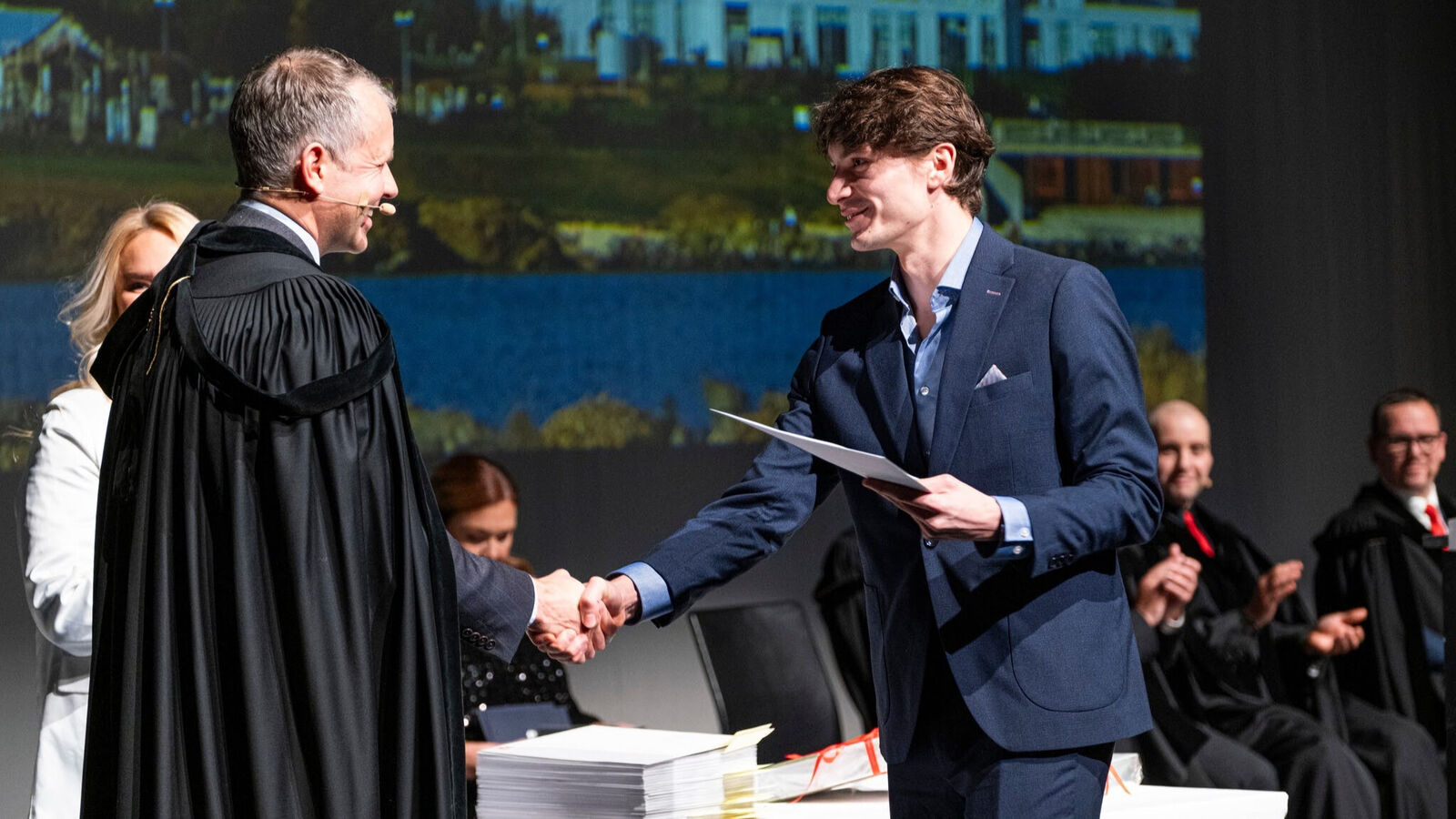Maxon Quas, USA
Advancing Wind Energy in Harsh Environments
The Iceland School of Energy (ISE) is pleased to feature the story of Maxon Quas , a recent graduate of ISE's MSc in Sustainable Energy Engineering program from Barrington, Rhode Island in the United States whose thesis research focused on advancements in wind energy efficiency. We sat down with Maxon to discuss his academic path, research, and the experience of studying in Iceland.
From Mechanical Engineering to Sustainable Solutions
Maxon's academic journey, beginning with a B.Sc. in Mechanical Engineering from the University of Vermont , naturally transitioned into wind energy research at ISE, thanks to his strong interest in fluid dynamics. This initial interest not only guided him towards ISE but also prepared him for one of his most enjoyed courses.
 Dr. Ármann Gylfason's team in the lab: PhD student Yuri and Master's student Maxon talking together in the wind research lab.
Dr. Ármann Gylfason's team in the lab: PhD student Yuri and Master's student Maxon talking together in the wind research lab.
Annually, the Iceland School of Energy, in partnership with the Department of Engineering, offers a Wind Power course, led by Dr. Ármann Gylfason , Chair of the Department of Engineering. This course explores the fundamentals of wind energy, focusing on the dynamics of fluid flow, design principles for horizontal axis wind turbines, strategies for wind farm configuration, techniques for field measurement, and more. A key feature of this course is its strong commitment to hands-on learning with the university's wind tunnel facilities, allowing students to gain a better understanding of the practical aspects of fluid dynamics. It was within this course and through the guidance of Dr. Ármann Gylfason that the basis for Maxon's thesis project was set.
From Concept to Impact
Maxon's thesis inspired by Iceland's high winds and sparse vegetation leading to high quantities of particulate matter, investigates the environmental erosion effects on vertical axis wind turbines (VAWT). Sponsored by Landsvirkjun, the National Power Company of Iceland his work focused on understanding how sand and rocks, when propelled by strong winds, impact turbine blades.

Icelandic highlands are characterized by sparse vegetation and predominantly rocky terrain, as captured by adege on Pixabay.
Ultimately, I aim to contribute to the advancement of sustainable energy technologies and make a tangible impact in addressing the global energy crisis. - Maxon Quas
To simulate these harsh conditions, Maxon utilized the university's wind tunnel, pairing high-speed cameras with particle tracking technology to capture and analyze the interactions between particulate matter and turbine blades. This approach yielded a comprehensive analysis of erosion patterns and offered insights into turbine design adaptations to enhance their durability and efficiency in similar environments.
The relevance of Maxon's research extends beyond academic interest, offering tangible solutions to a significant challenge in renewable energy. By identifying ways to extend the operational lifespan of wind turbines in harsh climates, his findings contribute valuable insights into turbine maintenance and design, highlighting the practical implications of bridging theoretical research with real-world applications in the work for sustainable energy solutions.
From the Classroom to the Trail
When we were finished discussing Maxon's research we turned to talk about his life beyond the classroom and what he enjoys about living in Iceland as a student.
There are so many amazing aspects of studying in Iceland! But if I had to pick a favorite, it would be the accessibility and warmth of the faculty here at HR. - Maxon Quas
Maxon explained that there are so many amazing aspects of studying in Iceland. Studying at ISE and Reykjavik University is unique because you have great access to the faculty teaching your courses, because the university is in one building you are always running into them in passing and they are always open to answering questions or providing help.

Maxon Quas and his thesis supervisor, Dr. Armann Gylfason, in a cycling competition.
Maxon is also known for being an active cyclist here in Reykjavik joining a local cycling club and even having the opportunity to cycle with and compete against his professor and thesis advisor Dr. Armann Gylfason. Maxon explains that it is these experiences that add to the feeling of being part of a real community not just with other students but within the local community as well. The bike has also allowed Maxon to explore Iceland's landscapes during his downtime, whether it's cycling through the countryside or cycling to the local pools or around town. It's all of these little things that add together to produce a rewarding experience of studying in Iceland.
The Journey Continues

Maxon Quas receiving his MSc in Sustainable Energy Engineering diploma at the Reykjavik University graduation ceremony, October 2023.
Maxon's story is more than an individual achievement; it's a testament to ISE's dedication to empowering students to follow their passions in the global pursuit of a cleaner energy future. Maxon graduated with his MSc in Sustainable Energy Engineering in the fall of 2023 and plans to continue his journey in Iceland, applying his research and leveraging the network he's built here to make an impact in the field of engineering. We wish Maxon nothing but the best in his journey.

